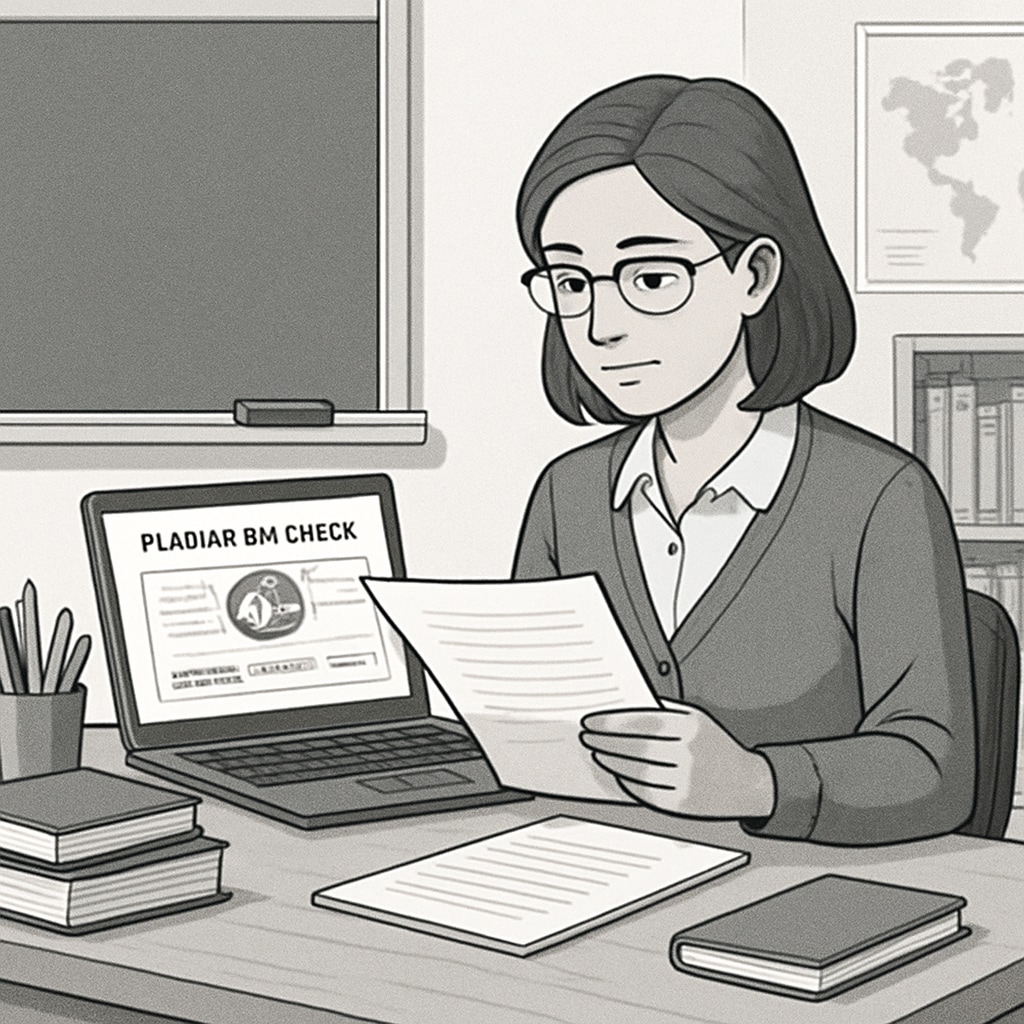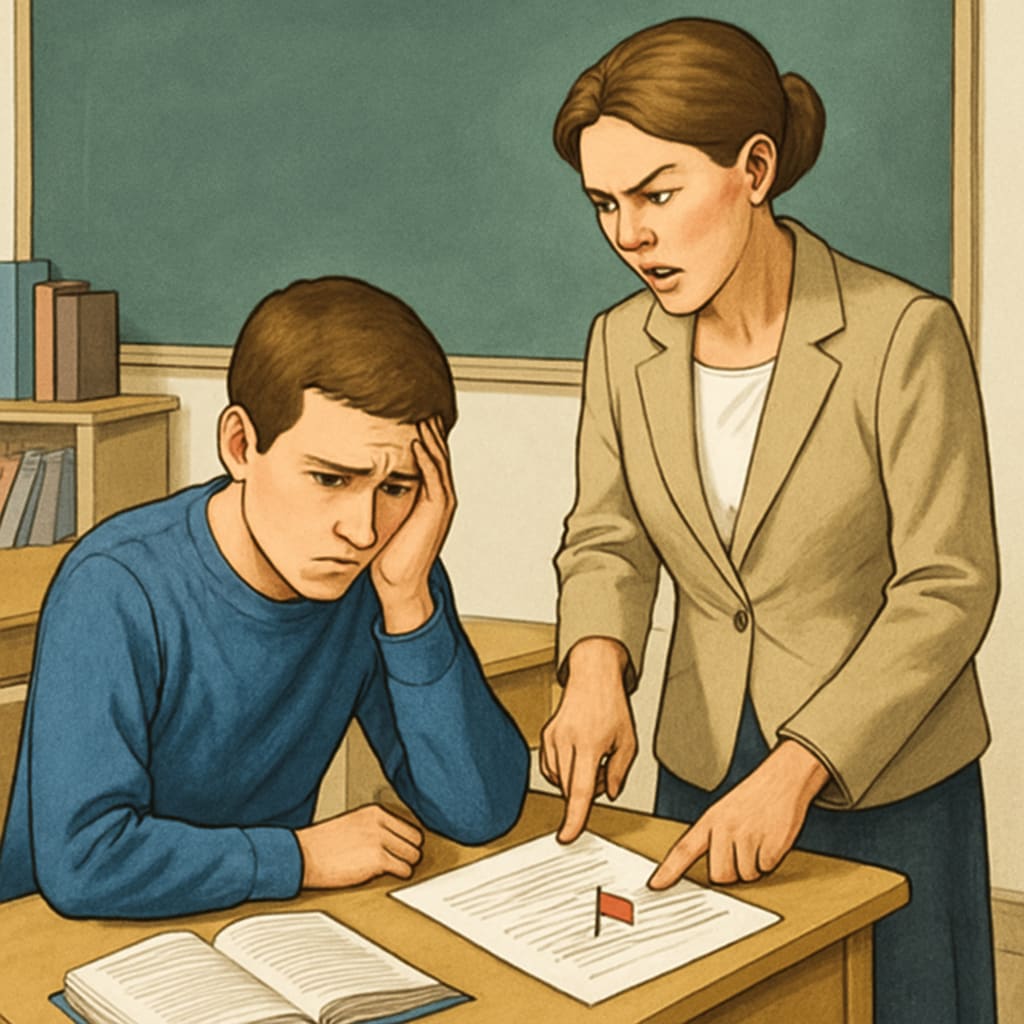Plagiarism accusations can be a serious matter, especially in K12 education, where students are still developing their understanding of academic integrity. However, when a professor wrongfully accuses a student of plagiarism, the impact can be profound. Such errors not only harm the student’s academic record but also their confidence and trust in the educational system. This article delves into the causes behind these wrongful accusations, their consequences, and practical steps to establish a fair judgment system in schools.
Understanding the Causes of Plagiarism Misjudgments
Plagiarism accusations often arise from misunderstandings or flaws in the evaluation process. Several factors contribute to these errors:
- Lack of clarity in guidelines: Many students in K12 education are not fully aware of what constitutes plagiarism. Without clear guidance, they may inadvertently misuse sources.
- Over-reliance on detection software: Tools like Turnitin are widely used, but they are not infallible. False positives can occur when common phrases or properly cited content is flagged.
- Implicit bias: Educators may unconsciously judge students based on preconceived notions, leading to unjust accusations.
For example, a student paraphrasing complex ideas might be mistakenly flagged for plagiarism if their work aligns with existing content. These scenarios highlight the need for a nuanced approach to plagiarism detection.

The Consequences of Wrongful Accusations
Being wrongly accused of plagiarism can have lasting effects on a student’s educational journey. The consequences include:
- Damage to reputation: Even if the accusation is later proven false, the stigma may linger among peers and teachers.
- Emotional distress: Students may feel frustrated, anxious, or disheartened, especially if they believe they have acted in good faith.
- Loss of trust in educators: A wrongful accusation can erode the student-teacher relationship, making it harder for students to seek guidance in the future.
For younger students, these experiences can discourage their academic growth and create a fear of engaging with challenging tasks, ultimately hindering their development.

Building Fair Judgment Mechanisms in K12 Education
To prevent wrongful plagiarism accusations, schools must adopt practices that promote fairness and accountability. Here are some actionable solutions:
- Educate students on academic integrity: Schools should provide workshops or modules on proper citation practices and the importance of originality.
- Use detection tools as aids, not final verdicts: Software should complement, not replace, human judgment. Teachers should review flagged content carefully before making accusations.
- Implement a clear appeals process: Students should have the opportunity to defend their work and provide evidence if accused of plagiarism.
- Encourage open communication: Teachers and students should engage in discussions about expectations and academic challenges to foster mutual understanding.
- Provide ongoing training for educators: Teachers need regular training to stay informed about updated plagiarism policies and emerging biases in detection tools.
By adopting these measures, schools can create an environment where academic integrity is upheld without compromising fairness for students.
Striking a Balance Between Integrity and Fairness
Academic integrity is a cornerstone of education, but it must be balanced with fairness. Mistakes in plagiarism accusations can undermine the very values that educators aim to instill. Therefore, it is essential for schools to prioritize transparency, education, and open communication. When students and teachers work collaboratively, the likelihood of misjudgments decreases, and the spirit of learning thrives.
In conclusion, wrongful accusations of plagiarism can cause significant harm, but they are preventable. By understanding the root causes, addressing biases, and implementing fair judgment mechanisms, K12 education can foster both academic integrity and trust. As educators and institutions, it is our responsibility to ensure that every student is given the opportunity to learn and thrive in an environment that values both accountability and compassion.
Readability guidance: Short paragraphs and a blend of lists ensure clarity. Overuse of detection tools and implicit bias were highlighted to provide practical insights. Transition words such as “however,” “therefore,” and “for example” were distributed throughout to maintain flow.


